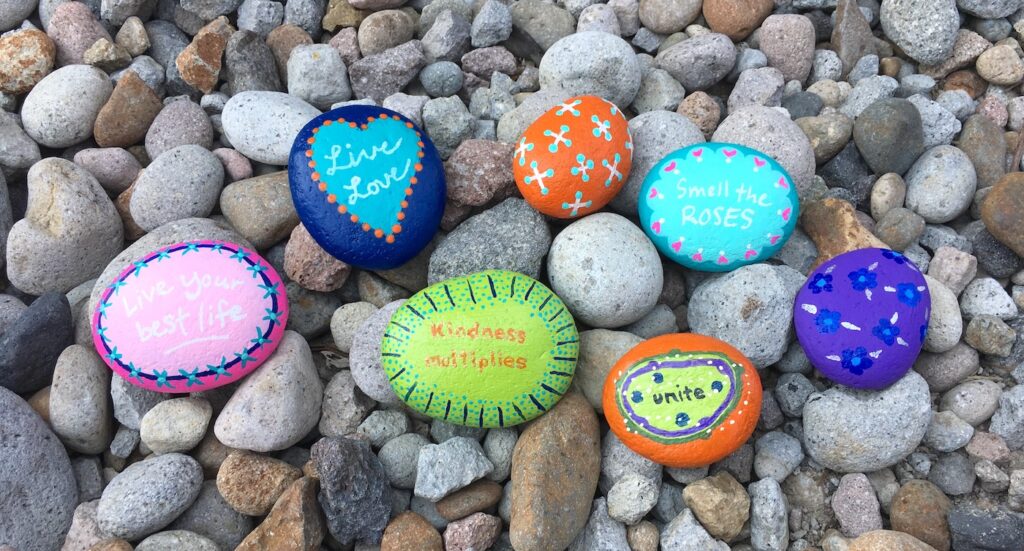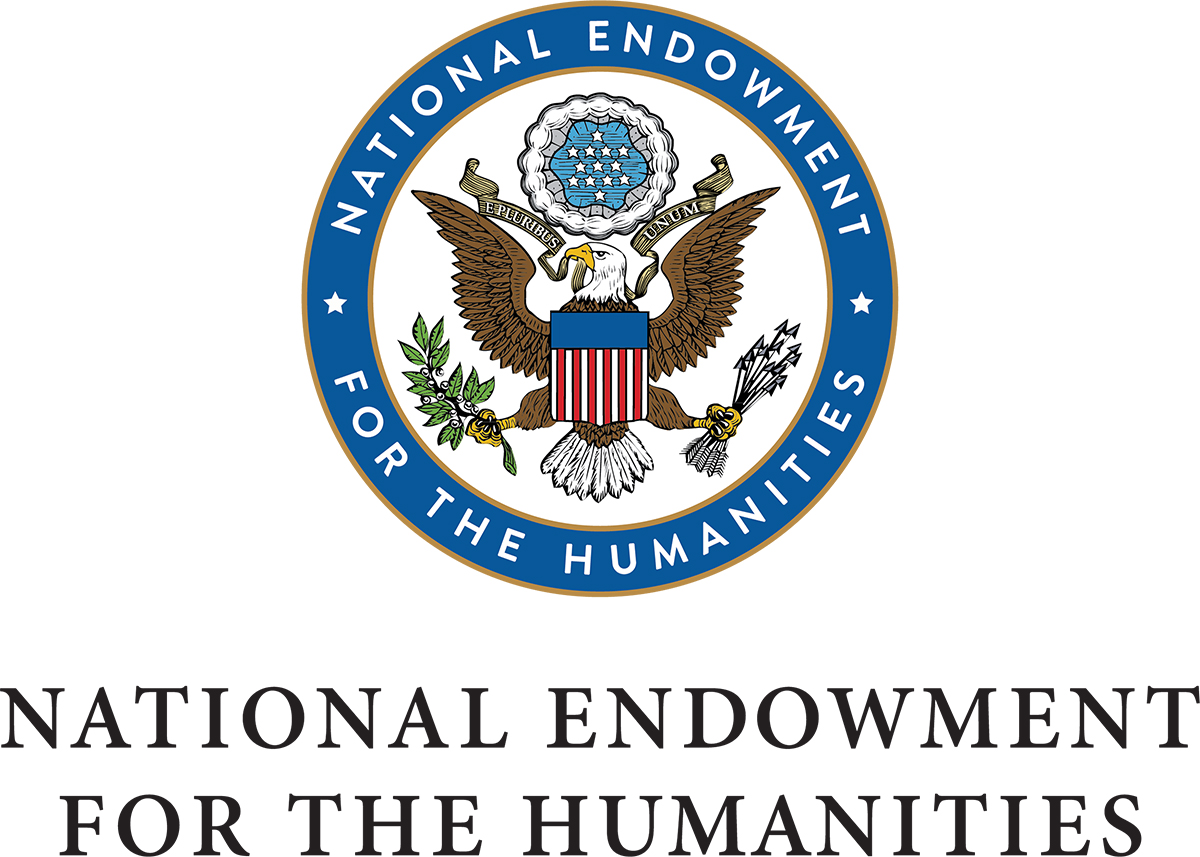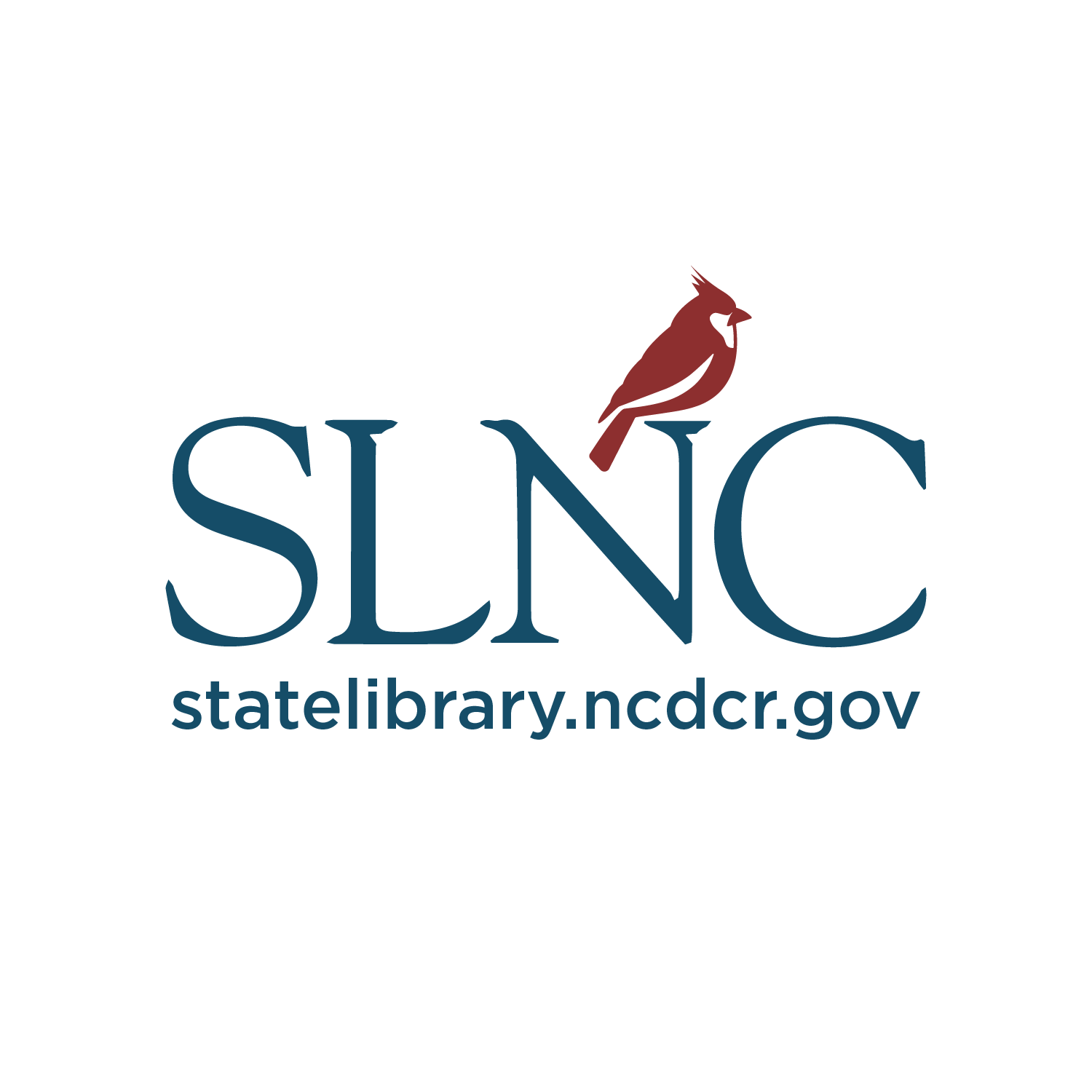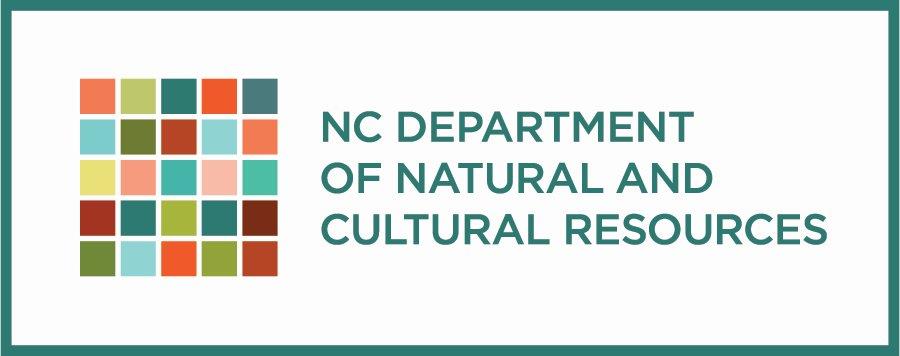Museums bring people together. They preserve history, promote learning, and have even been proven to increase our overall sense of wellbeing. You may not think of a museum as a place for practicing healthy communication skills too, but that’s exactly what Kidzu Children’s Museum in Chapel Hill is doing.
In 2022, Kidzu received project grant funding from North Carolina Humanities to support their conversation series entitled “Let’s Talk About It: Practicing Civil Discourse with Young Children and Families”. The workshop series provided tools to families to practice having difficult conversations and promoted having healthy dialogue to increase mutual respect and understanding. After the series, an interactive museum exhibit and website were created to further promote healthy conversation resources grounded in the humanities.
We connected with Melanie Hatz Levinson, Chief Creative Officer at Kidzu Children’s Museum, and Tanya Day, Education Manager at Kidzu Children’s Museum to learn more about the workshop series and the benefits of learning how to have healthy conversations about everyday topics and during difficult times.
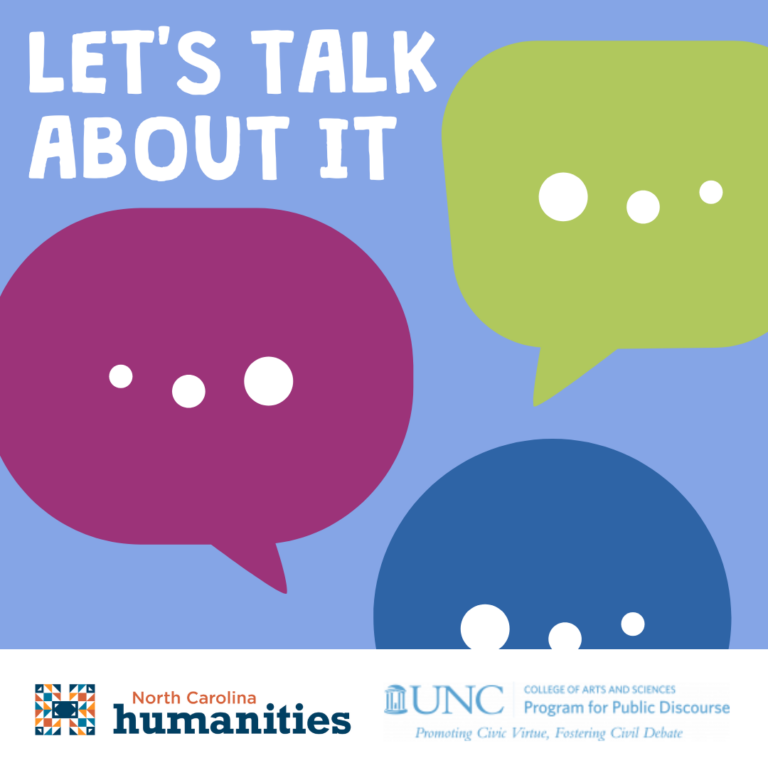
Tell us about Kidzu Children’s Museum!
Melanie: Kidzu was founded in 2006 with a mission to serve, to reflect, and to celebrate our community. Being a children’s museum within a college town we’re in a unique position to partner with places of higher learning and hundreds of community partners every year to explore some interesting and timely topics. We see ourselves as a learning lab and a multi-generational space to be enjoyed by children and families. The name Kidzu is a play on “Kids University” because we are so close to UNC Chapel Hill. It really came from this idea of creating a university-type place for kids and families to exchange ideas and learn, just like you would at a university. We partner with UNC Chapel Hill often and this grant from NC Humanities epitomized that in a really beautiful way.
Tanya: At Kidzu our robust programming is available and accessible for anyone at any socioeconomic level. We present a lot of multicultural and multilingual programs that we weave aspects from into everything that we do at the museum.
Where did the idea for this workshop series come from?
Melanie: This project organically grew out of a former NC Humanities American Rescue Plan Humanities Grant-supported project called “Kids in COVID”. The exhibit was about processing the COVID-19 pandemic and celebrating healthcare workers, teachers, and children for their bravery and diligence. One of the things that we heard from students during that time was that they wanted to talk about their experiences, but it was difficult, and they didn’t know where to begin. With that in mind, we thought, how do we potentially leverage some of the expertise within the local university community to help our museum audiences have difficult conversations. After talking with some local humanities experts, UNC Chapel Hill’s Program for Public Discourse, and the National Paidei Center, we agreed that we could develop a series of programs where kids and adults could learn to disagree without anger and learn how to listen and work towards respect.
How did the idea for “Let’s Talk About It: Practicing Civil Discourse with Young Children and Families” develop after the first session?
Melanie: At the beginning we wanted to know what topics the kids wanted to talk about, so we hosted a community listening session. Among other activities, to generate ideas, we had a scale and heavy rocks that kids could label with topics they perceived as hard to talk about, and small rocks with topics that might be easier to talk about. We heard that to some, it’s easy to talk about family and friends, but on the other hand, other kids reported that it was hard. One child told us about a relative that had just died and how it’s difficult to talk about death. From this comment, we realized we needed to bring in content professionals to be part of this series. We also knew we wanted to start off each session by explaining a set of ground rules for discussion. We had one conversation each month for six months with our community where kids and adults came to talk with their peers.
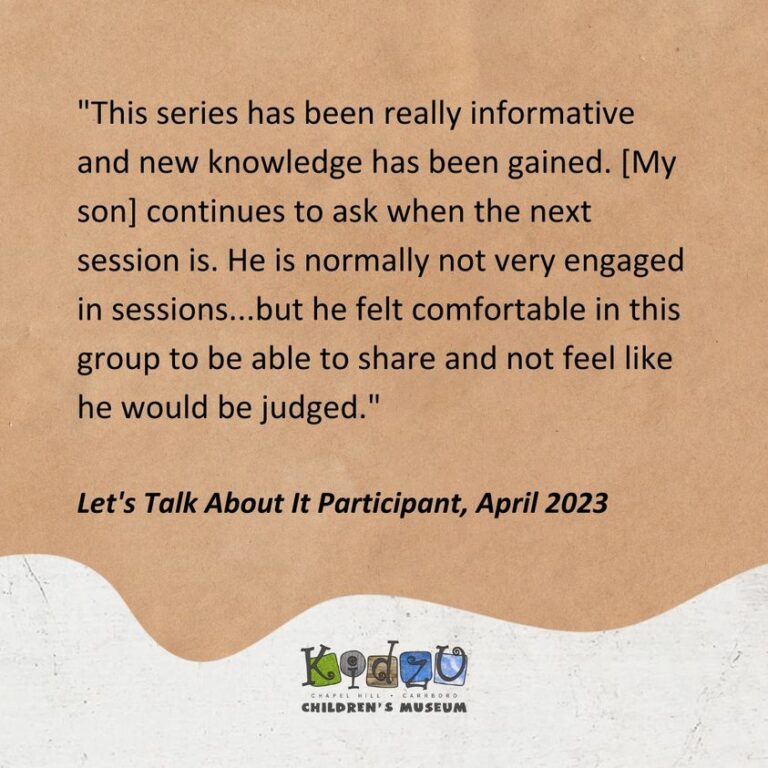
Can you tell us about one of the sessions?
Tanya: Is a hot dog a taco or a sandwich? Which is the better pet: a cat or a dog? Those are two of my favorite conversation starters from one of the sessions. The questions seem silly at first, but the exercise was meant to encourage discourse about feelings, promote critical thinking, and bolster respect for different perspectives. The kids got really into answering these questions. But then we asked “Okay, well, why? What are your reasons? Why might that other group feel the other way? Let’s hear their points. What about those points the other group said resonate with you? Why would they think that way? What are they coming with, background knowledge, that would make them feel that way?” After that discussion, we had kids saying “Oh, that does make sense. I see how you feel like that about dogs. It didn’t change my mind, but now I understand.” All and all, our sessions were about learning skills: How do you talk, but also how do you listen? After the six community conversation sessions were over, we even brought some of these professionals back in to do communication training with our museum staff.
Have you seen long-term impacts from this workshop series?
Melanie: Thanks to this grant from NC Humanities, we were ready to tackle a serious, traumatic incident that happened right in our backyard. As a children’s museum, when traumatic events happen, you want to jump in whether you’re ready or not. Thankfully, we were more prepared to help the community process and heal when there was a shooting on the campus of UNC Chapel Hill in August 2023. Having hosted our “Let’s Talk About It: Practicing Civil Discourse with Young Children and Families” series, we felt like we had more tools in our tool belt to go to. It was a scary day in our community, especially for kids. Families were struggling with how to talk about what happened so we invited some of our series experts back to the museum to help us talk more about what had happened and how we can talk with kids about these difficult things. Thanks to this grant from NC Humanities and the partnerships we made, we felt equipped to be that place that could offer refuge, solace, and education to the children and families of our community.
What was your experience working with North Carolina Humanities?
Melanie: NC Humanities is not just a funder, you’re a partner. Knowing that we could work in partnership on this project gave us the confidence to take chances, to explore, and to make it a successful community series. This is the grant that keeps on giving as this project has launched a lot of amazing new ideas, new partnerships, and new opportunities for us. There will always be topics that are hard to talk about and we’re here to help facilitate.
How can people get involved and support your work?
Melanie: There are resources and recaps that we invite everyone to access at: https://www.kidzuchildrensmuseum.org/virtual-museum/lets-talk-about-it/ Please also learn more and donate to Kidzu at: https://www.kidzuchildrensmuseum.org/donate/.
About North Carolina Humanities’ Grantee Spotlights: NC Humanities’ Grantee Spotlights shine a light on the incredible work of our grantee partners, offering details about their funded project, and feature a Q&A with a team member(s) associated with the organization. This interview has been edited for length and clarity.


